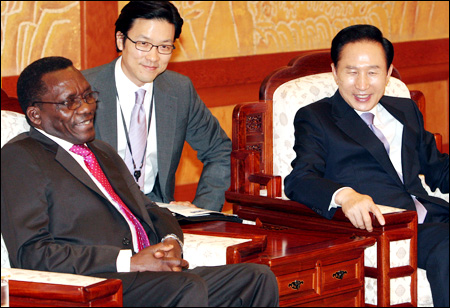By Victor Karega

South Korea, through the Korean Economic Development Fund, has extended a $50 million (about Sh65 billion) loan to the Rufiji Basin Development Authority (Rubada).
The loan is meant to help Rubada undertake a rice-farming project in the Rufiji Basin.
Rubada director general Aloyce Masanja said on Wednesday in Dar es Salaam that the project would be jointly implemented by his agency, the Korea Rural Community Cooperation (KRCC), and a Korean machinery company, Kukje, which specialises in manufacturing food processing machinery.
"The funds are expected to boost rice production from the current one tonne per hectare to between four and six tonnes per hectare. The target is to produce 12 tonnes per hectare in this first phase of the project, which will take two years," Mr Masanja said, adding that implementation of the project would help to stabilise food security in the country.
Another objective of the project is to help Rufiji and Kilombero farmers increase their productivity.
It will be undertaken in the four blocks of the Rufiji Basin, which are Ikwiriri, Mkongo, Delta and Ruaruke. About 100,000 hectares of land have been set aside for modern rice farming under the project.
Mr Masanja said implementation of the three-component project would start in the current financial year after the signing of the partnership agreement between Tanzania and Korea.
The three components are agricultural production, which would focus on rice production, establishment of an agro-processing industry that will focus on food, oil and fruits processing, and the establishment of an assembly plant for manufacturing agricultural machinery.
Kukje export official Peter Kim said the joint undertaking of the project aimed to enable local farmers engage in modern rice farming to meet domestic food demand and be able to effectively compete with their external counterparts.
He said machinery to be imported under the project would include power tillers and rice planting, separating and harvesting equipment as well as automatic packing ones. He said investing in the Rufiji Basin would pay off because of the easy access to local and regional markets.












